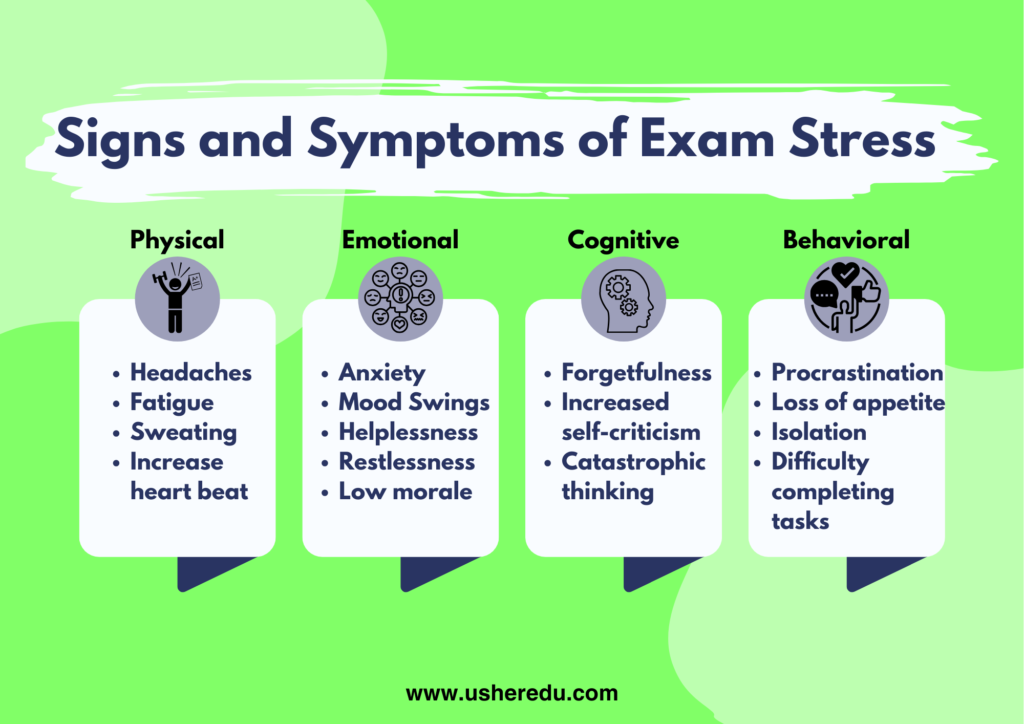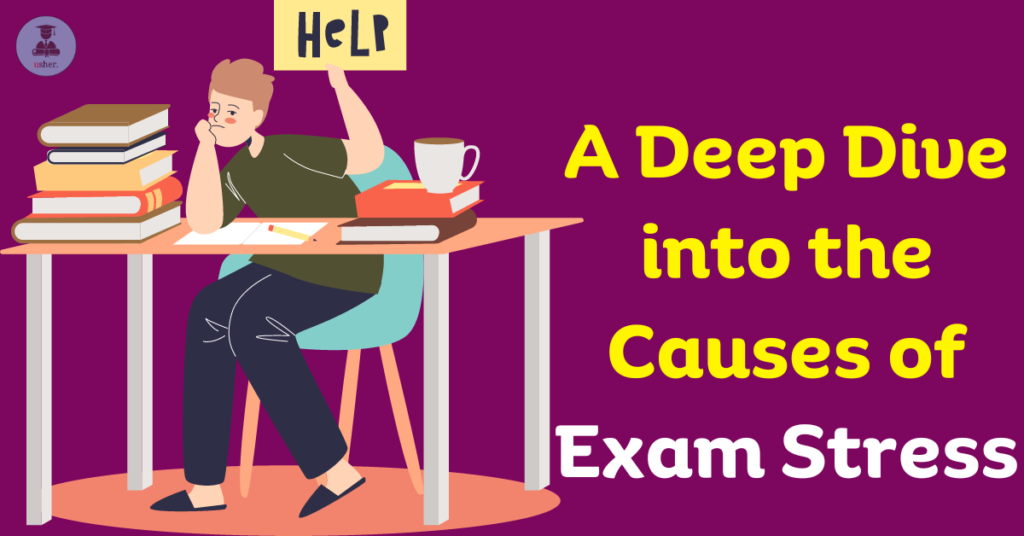Exam season is on, and guess what? That anxiety and stress hit you again. You start to feel nervous and overwhelmed as the pressure to perform well increases. The fear of failure and the high expectations from yourself and others set in.
Well, all of this is quite normal. In fact, a moderate degree of stress can motivate and challenge you to work harder. The problem gets real when stress and anxiety become excessive and interfere with your ability to perform and achieve your academic goals.
What is Exam Stress?
Exam stress refers to the overwhelming pressure and anxiety experienced by students leading up to and during examinations. It is a natural response to the high expectations, competition, and fear of failure associated with exams.
Signs and Symptoms of Exam Stress

What causes Exam Stress?
Stress and anxiety related to exams can be brought on by a variety of things, and different people may react differently to the same stresses.
Here are a list of factors that contribute to exam stress
High Academic Pressure
The pressure to perform well academically, maintain high grades, or meet expectations from parents, teachers, or oneself can lead to stress.
Fear of Failure
The fear of failing exams, not meeting personal or societal expectations, or disappointing oneself or others can cause significant stress.
Inadequate Preparation
Insufficient time to study, lack of effective study strategies, or feeling unprepared for exams can create anxiety and stress.
Overwhelming Workload
A heavy workload, multiple exams in a short period, or managing other academic responsibilities can overwhelm students and contribute to stress.
Perfectionism
Setting excessively high standards for oneself and fearing not meeting those standards can lead to stress, anxiety, and a constant feeling of inadequacy.
Lack of Time Management
Poor time management skills, procrastination, or feeling rushed to cover the syllabus can increase stress levels.
High Expectations from Others
Feeling pressure from family, peers, or society to excel in exams or pursue a specific academic path can create stress.
Uncertainty about the Future
Anxiety about what the exam results mean for future opportunities, careers, or higher education choices can be a significant stressor.
Health Issues
Physical health problems or chronic illnesses can add to stress, especially if they interfere with studying or attending exams.
Test Anxiety
Fear of exams, fear of failure, or anxiety related to test-taking can intensify stress during the exam period.
Lack of Support
Inadequate emotional or academic support, feeling isolated, or not having a support system can contribute to heightened stress levels.
Sleep Deprivation
Lack of sufficient sleep due to studying, anxiety, or other reasons can impair cognitive function and increase exam stress.
Comparisons and Competition
Constantly comparing oneself to peers or feeling pressured to outperform others can create anxiety and stress about not measuring up.
Unrealistic Goals or Expectations
Setting overly ambitious goals or unrealistic expectations for oneself in terms of exam performance can lead to stress and a sense of inadequacy.
Societal or Cultural Pressure
Societal or cultural norms that emphasize academic success as a measure of one’s worth can contribute to significant stress, especially in high-achieving communities.
Personal Life Challenges
Dealing with personal issues such as family problems, relationship troubles, or major life events can add stress and distractions during exam periods.
Lack of Confidence
Low self-esteem, self-doubt, or a lack of belief in one’s abilities to perform well in exams can increase stress levels.
Negative Past Experiences
Previous failures in exams or negative experiences during exams can create anxiety and stress when facing new exams.
Perceived Lack of Control
Feeling a lack of control over exam outcomes or feeling helpless in the face of exams can contribute to heightened stress levels.
Technological Distractions
Constant notifications from electronic devices, social media, or online distractions can hinder effective study habits and contribute to stress.
Fear of Judgement
Worrying about what others might think or say about exam performance can cause stress and anxiety.
Balancing Responsibilities
Juggling academic responsibilities with part-time work, family obligations, or extracurricular activities can create stress due to time constraints and added pressure.
Also read: 7 Practical Ways To Overcome Exam Stress And Anxiety
It’s important to recognize that exam stress is a common experience, and seeking support from teachers, counselors, or mental health professionals can help individuals develop coping mechanisms and manage stress effectively. Additionally, adopting healthy coping strategies and practicing self-care can significantly reduce exam-related stress.
All the best!




